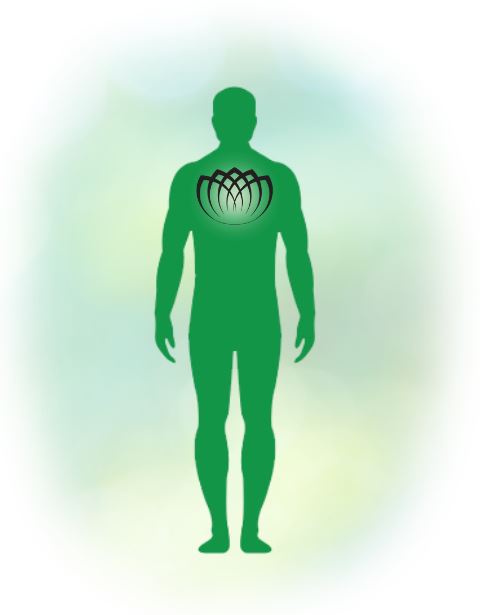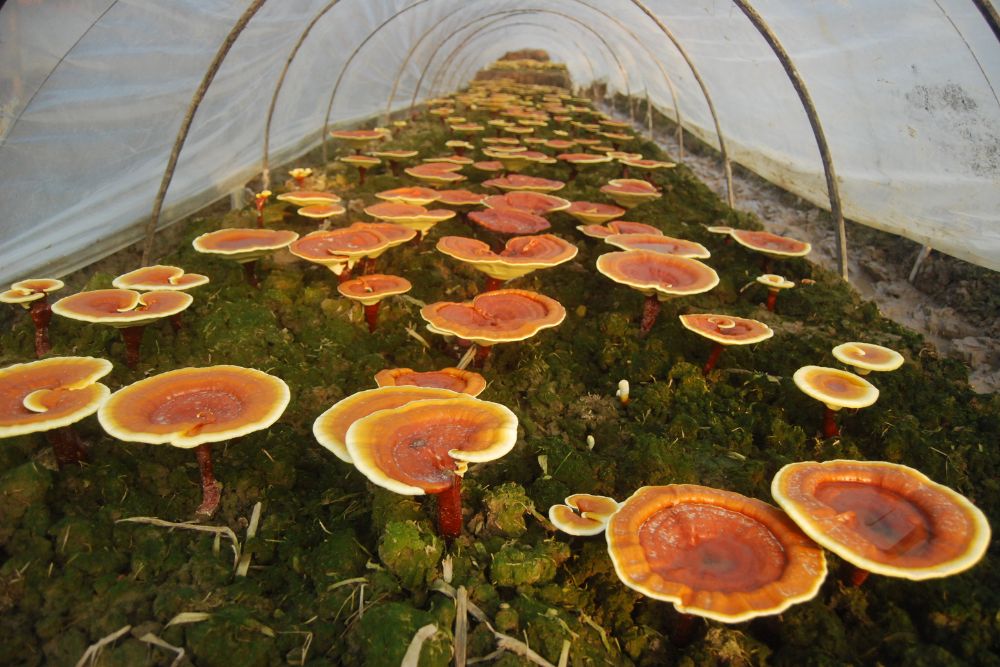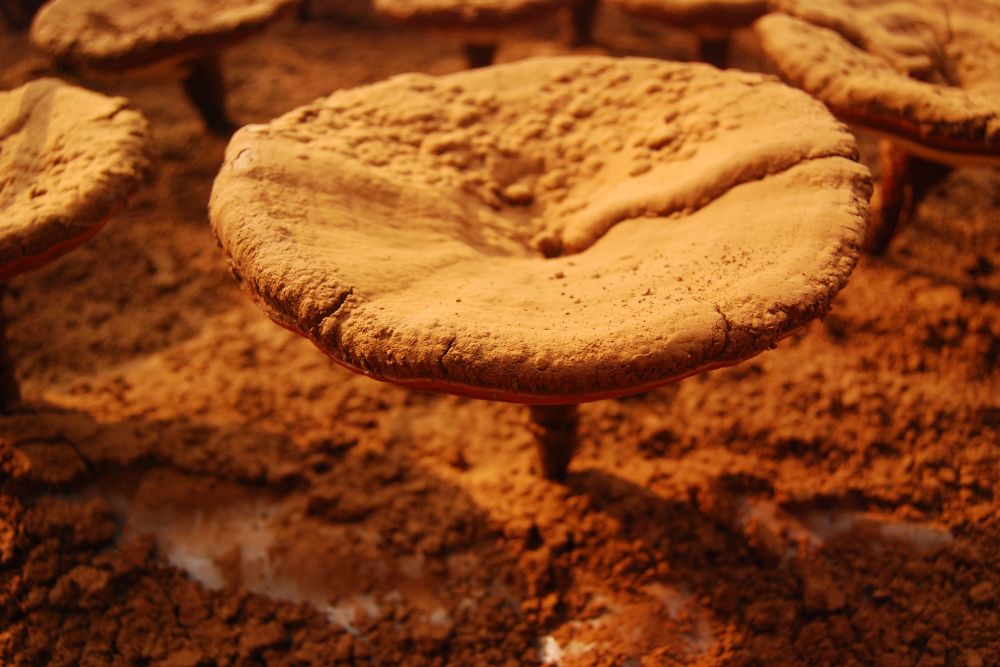Reishi
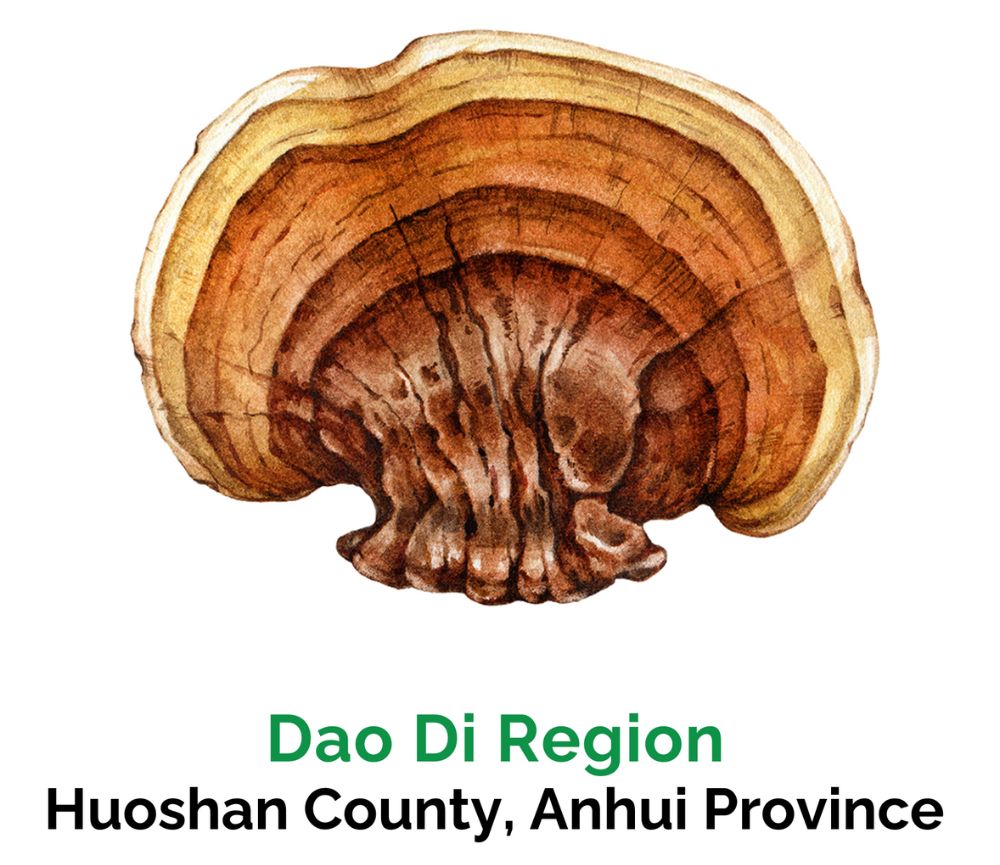
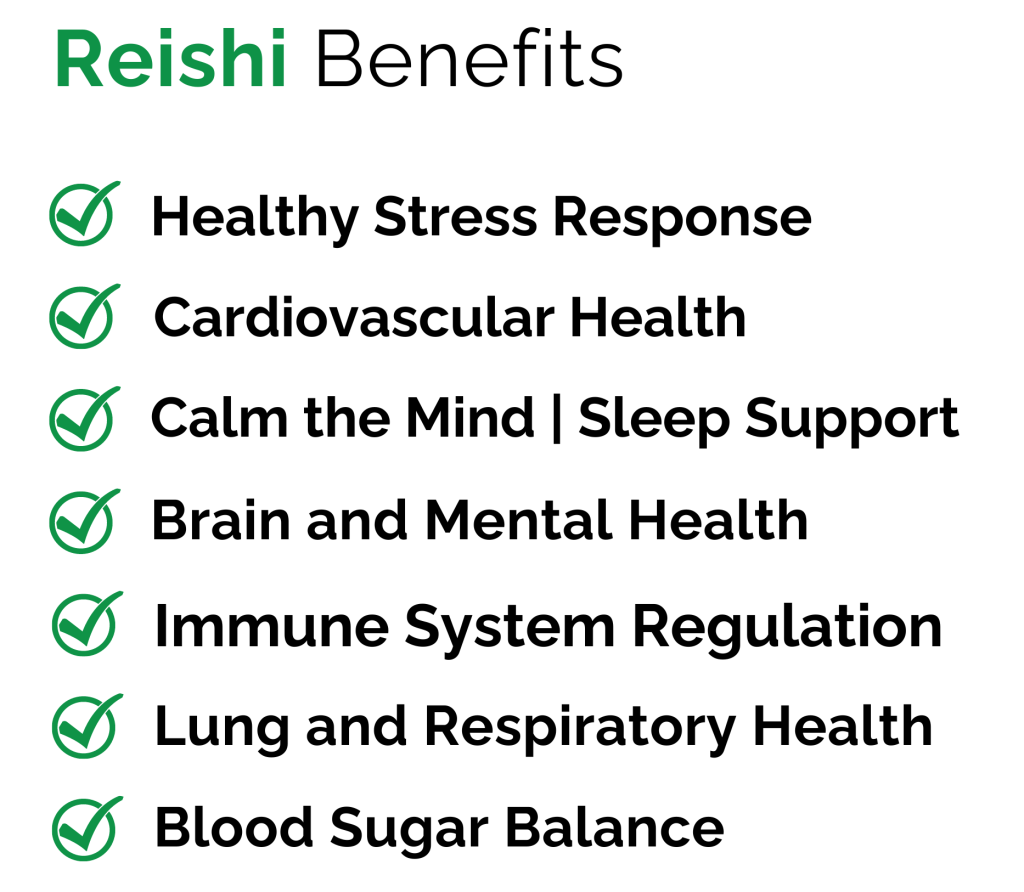
Reishi mushroom, scientifically known as Ganoderma lucidu, (Lingzhi in China and Korea and “mannetake” in Japan) boasts a rich history in traditional Chinese and Japanese medicine as ”The King of Mushrooms” or ”The Mushroom of Immortality” – given because of its potent therapeutic properties. With a legacy spanning over 4,000 years, Reishi has been utilized to treat various ailments such as fatigue, stress, asthma, coughs, and liver conditions while also being associated with promoting longevity.
Using cutting-edge research methods, scientists have identified an impressive array of more than 400 diverse bioactive compounds. These include triterpenoids (such as Ganoderic Acid), polysaccharides (Beta-glucan: Ganoply), adenosine, sterols, steroids, fatty acids, proteins, peptides, and trace elements. All of these collectively contribute in supporting the body’s many systems and functions. As the scientific understanding of Reishi continues to grow it becomes evident that this ancient mushroom holds promise as a valued contributor to modern health and wellness.
Healthy Stress Response
Cardiovascular Health
Reishi’s historical significance is underscored by the fact that one of its key components, Adenosine, plays a pivotal role as a building block in adenosine triphosphate (ATP) – or the body’s fuel source. Adenosine also plays a major role in regulation of blood flow through vasodilation. This vasodilatory effect becomes particularly beneficial during cardiac stress tests, as it enhances blood flow to the heart muscle.
The chronicle wisdom surrounding Reishi’s medicinal properties finds validation in the modern clinical application of Adenosine, which is utilized in hospitals under the name Adenocard. There, it is employed to alleviate chest pain and restore normal heart rhythms, while addressing cardiac irregularities. Reishi extract contains a microdose to the concentrated amount injected in hospitals.
Diving into the research, one clinical trial involving 26 individuals with diabetes who were also at risk of cardiovascular complications. Reishi was compared to a placebo (12). The results were striking, as Reishi supplementation led to a significant decrease in total triglyceride levels and an increase in HDL (“good”) cholesterol. These effects were not observed with the placebo. Furthermore, Reishi played a beneficial role in partially restoring insulin sensitivity and reducing excessive hormone levels.
In another study (13), the capacity of Reishi to enhance antioxidant levels and reduce the counts of circulating blood vessel wall cells was increased. Elevated counts of these types of cells can signify compromised cardiovascular health because they break off from damaged blood vessels. Reishi extract not only elevated the participant’s antioxidant status, but also substantially lowered the counts of circular blood cells. Notably for individuals with stable angina, the average counts plummeted from 7.91 to a mere 1.76 – marking a remarkable reduction of over 75%. These findings emphasize Reishi’s potential as a valuable ally in supporting cardiovascular well-being.
Calm the Mind | Sleep Support
Common symptoms related to heightened stress levels such as racing thoughts, forgetfulness, insomnia, and palpitations align with the historical use of Reishi in Traditional Chinese Medicine (TCM). The presence of Adenosine in Reishi, a noteworthy property relating to the inhibition of the nervous system, offers insights into the calming effects on the mind often attributed to Reishi. Additionally, human stress response involves the release of stress hormones and neurotransmitters like cortisol, dopamine, epinephrine, and norepinephrine (adrenaline in the brain). Reishi’s polypeptides have shown promise in managing these responses, which helps restore stress hormone levels to their natural, balanced state.
Beyond its potential to alleviate occasional stress, Reishi can serve as an ally in promoting restful sleep. A study conducted on rats revealed that Reishi played a role in reducing sleep latency, the time it takes to fall asleep, while simultaneously increasing total sleep duration (2). Researchers posit that Reishi’s impact on sleep may be linked to the microbiome and its interaction with serotonin pathways (3). Furthermore, these animal studies hint at Reishi’s potential to influence GABA receptors, a neurotransmitter that acts like the brakes in a car, slowing thought, and is targeted by sleep medications (4).
Brain | Mental Health
Reishi’s anti-aging attributes may extend their protective reach to encompass the prevention of conditions like Alzheimer’s disease. In a study involving mice, Reishi inducted a notable shift in gene expression (5) favoring a more regenerative and cognition-enhancing profile. Furthermore, it demonstrated the capacity to enhance memory and learning while safeguarding against the loss of precious brain cells.
In contrast to Alzheimer’s disease, depression can affect individuals at any stage of life. Fortunately, Reishi may offer valuable antidepressant (6) by rekindling serotonin production and reinvigorating the brain’s intrinsic regenerative mechanisms. Notably, Reishi exhibited efficacy even in the presence of stress hormones, which is a crucial consideration as chronic stress often serves as a trigger for depression. This multifaceted potential truly highlights the versatility of Reishi as a natural agent in promoting both cognitive health and emotional well-being.
Immune System Regulation
Numerous key components, Beta (1-3), (1-6) glucans, polysaccharides, and triterpenoids, showcase Reishi’s capacity to bolster the immune system by enhancing the production and activity of immune cells. This immune-boosting effect has garnered significant attention, particularly for its potential to fortify the body’s defense mechanisms. A study involving young children found that Reishi’s Beta-glucans can increase immune cell counts over the course of 12 weeks. Beta-glucans support immune system cells by playing a critical role in building up a “memory” of specific infections. This helps you respond faster the next time you come in contact with the same pathogen.
In relation to autoimmunity and the severity of allergies, there is some concern that boosting immunity could increase risk. However, Reishi is demonstrated to have anti-inflammatory and anti-allergic properties. This means Reishi regulates the immune system (7) instead of stimulating all its actions.
Lung & Respiratory Health
Reishi has a historical track record in Chinese medicine as a remedy for bronchitis, a chronic lung condition that profoundly affects respiratory function (9). In a study involving mice, Reishi exhibited support for a balanced inflammatory response, thereby reducing the sensitivity of airways (10). If this effect can be extrapolated to humans, it implies that Reishi may contribute to easier and unobstructed breathing.
Among the many phytochemicals found in Reishi, one of the most extensively studied is the steroidal triterpenoid known as Ganoderic acid. Research has revealed that Ganoderic acid can effectively inhibit tumor growth and prevent lung metastasis by boosting immune function (11). Additionally, it has been associated with the reduction of histamine levels, which play a pivotal role in allergies (11). These findings collectively highlight the potential of Reishi as a natural means to support lung health and alleviate respiratory challenges.
